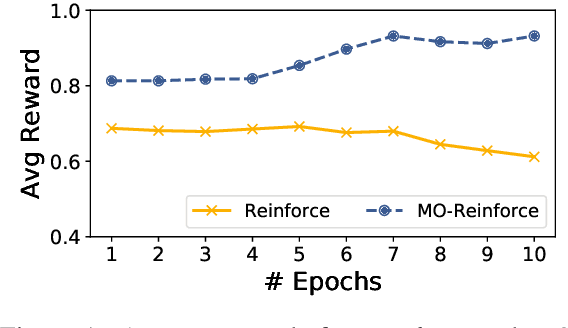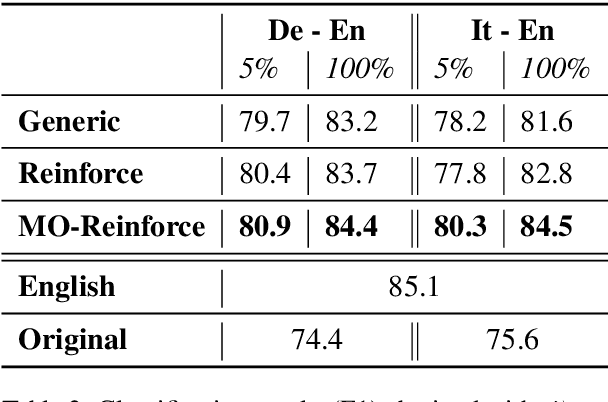Machine Translation for Machines: the Sentiment Classification Use Case
Paper and Code
Oct 01, 2019



We propose a neural machine translation (NMT) approach that, instead of pursuing adequacy and fluency ("human-oriented" quality criteria), aims to generate translations that are best suited as input to a natural language processing component designed for a specific downstream task (a "machine-oriented" criterion). Towards this objective, we present a reinforcement learning technique based on a new candidate sampling strategy, which exploits the results obtained on the downstream task as weak feedback. Experiments in sentiment classification of Twitter data in German and Italian show that feeding an English classifier with machine-oriented translations significantly improves its performance. Classification results outperform those obtained with translations produced by general-purpose NMT models as well as by an approach based on reinforcement learning. Moreover, our results on both languages approximate the classification accuracy computed on gold standard English tweets.
 Add to Chrome
Add to Chrome Add to Firefox
Add to Firefox Add to Edge
Add to Edge